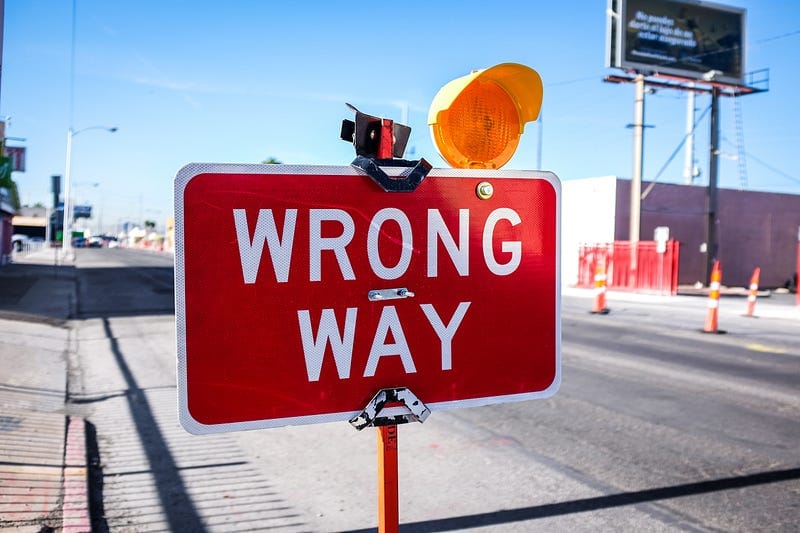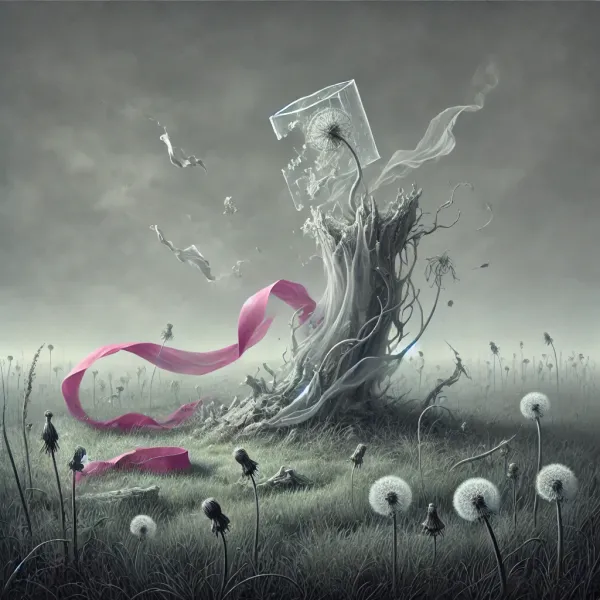Off course. Please return to the correct route.
Beyond Maps: Navigating Uncharted Waters

We have all been there. When you take a trip by car, we are following our navigation system in a blind trust. And well, usually it works. We reach the destination, mostly without any hiccups.
But then there are those exemptions.
Those spectacular fails you read in the news about. People driving over a cliff, taking a u-turn in a one-way tunnel, or driving through the window of a shop — because the navigation system “told” them: this is the correct route.
The correct route.
A navigation system does give you various options when you ask to calculate a route to a specific destination. Each option is based on an assumption and has advantages and disadvantages.
Which one is then the correct one?
Our state-of-the-art navigation systems are based on data sets of the past. They are fed with known pathways, roads, and passages between the point of origin and the point of destination.
They use their algorithmic magic to apply old-school mathematics to a real-life problem.
But not only navigation systems work that way.
The underlying paradigm of this approach is rooted deeply in our cultural history. When it became evident that a society built on spirituality as its means to progress and revelation failed the majority of humanity, we turned to science as the new religion.
Based on science, we believed (and still do, if you think about it) that we can progress as a whole to the wonderful lands of Utopia and beyond.
And it worked.
The more scientific findings we had, the more we could apply them to everyday reality and create subsequent technologies. The more we applied those technologies, the more data we collected. The more data we collected, the more we could iterate our technology to higher levels of complexity.
The more complex our technologies got, the more data we collected. And the more data we had, the more patterns we found. The more patterns we found, we started to see them as the inevitable pathways, that will continue beyond the present moment.
We designed our navigation systems to calculate the correct routes into the future.
But as real-world navigation systems give you options, we figured, that there is not only one route to the desired destination, but many.
We realized that our world is more complex than originally anticipated.
(Note that I use “we realized” because the world has been always complex, only we reached a sophistication level, where we could finally see that).
Here we are. An infinite amount of routes around us. Arguing about which one is “the correct” one into the future.
And while we were busy designing tools to calculate the correct routes and ever more of them, we forgot about the most important aspect of navigation.
We forgot to update our destination.
We were so busy arguing about the correct route while moving, that we did not realize that we left the solid grounds of modernity (meaning progress based on science and growth) long ago.
We entered the archipelago of emergence.
Now an archipelago comes with one frightening characteristic.
Roadmaps do not work on water.
Suddenly we are faced with the fact, that for navigating our current environment we need a different skill set.
We need a clear North Star to chart course (a clear vision of where it is we want to go), we need a working compass (our values and guiding principles that reflect our being), and knowledge about the winds and weather, the currents and tides (foresight processes).
And we need to let go of one core idea, that brought us here, that will not bring us there.
We have to stop looking for the correct route.
Because in the archipelago of emergence, we chart the route while traveling it.
We do not know what lies ahead. We have no map showing us all the roads that we could take.
Turning around and moving backward is also not an option. Solid grounds are too far gone.
So far, that one might start thinking, that they might have never existed in the first place.
Hi, I am Eva Tomas Casado. Futurist by nature, engineer by training, and philosopher by heart. I am an advocate of thinking as our superpower in the in-betweenness of our times. If you want to engage in collective thinking visit my webpage or reach out on LinkedIn.




